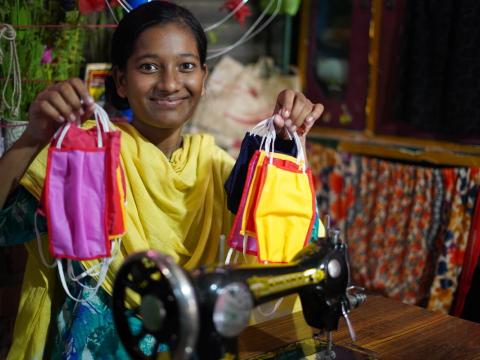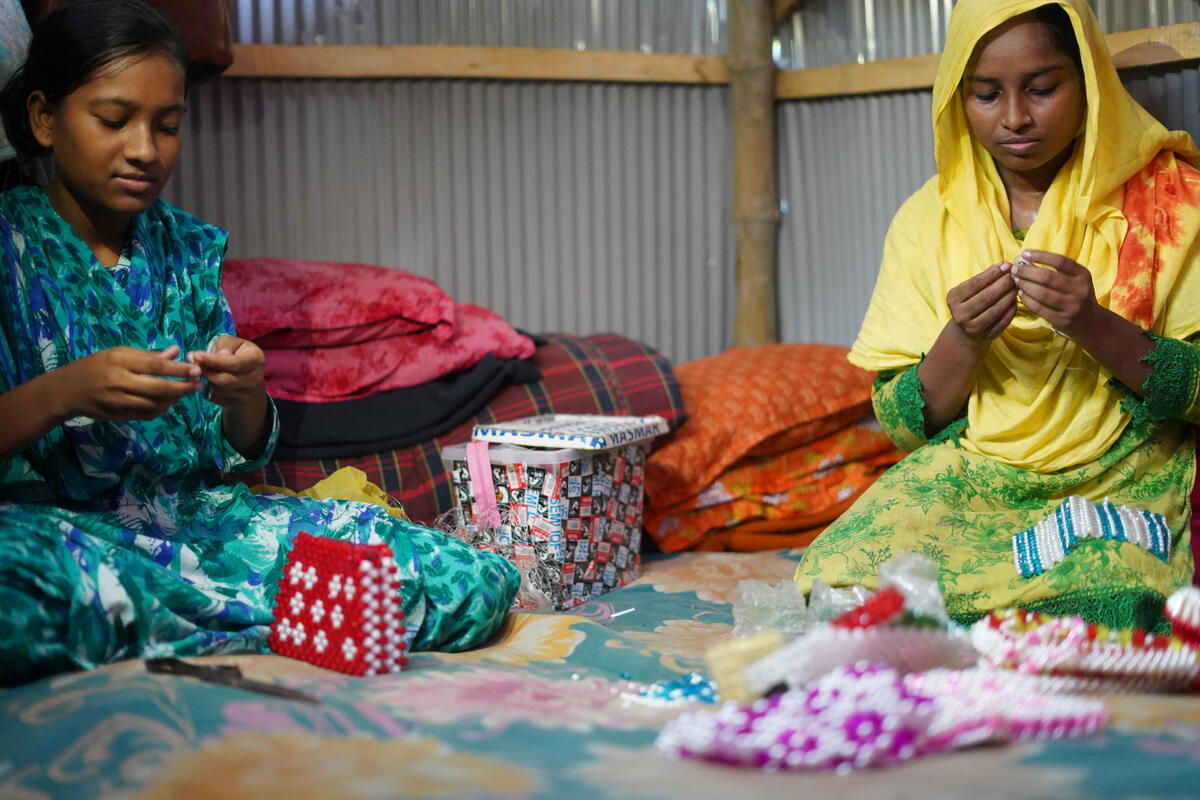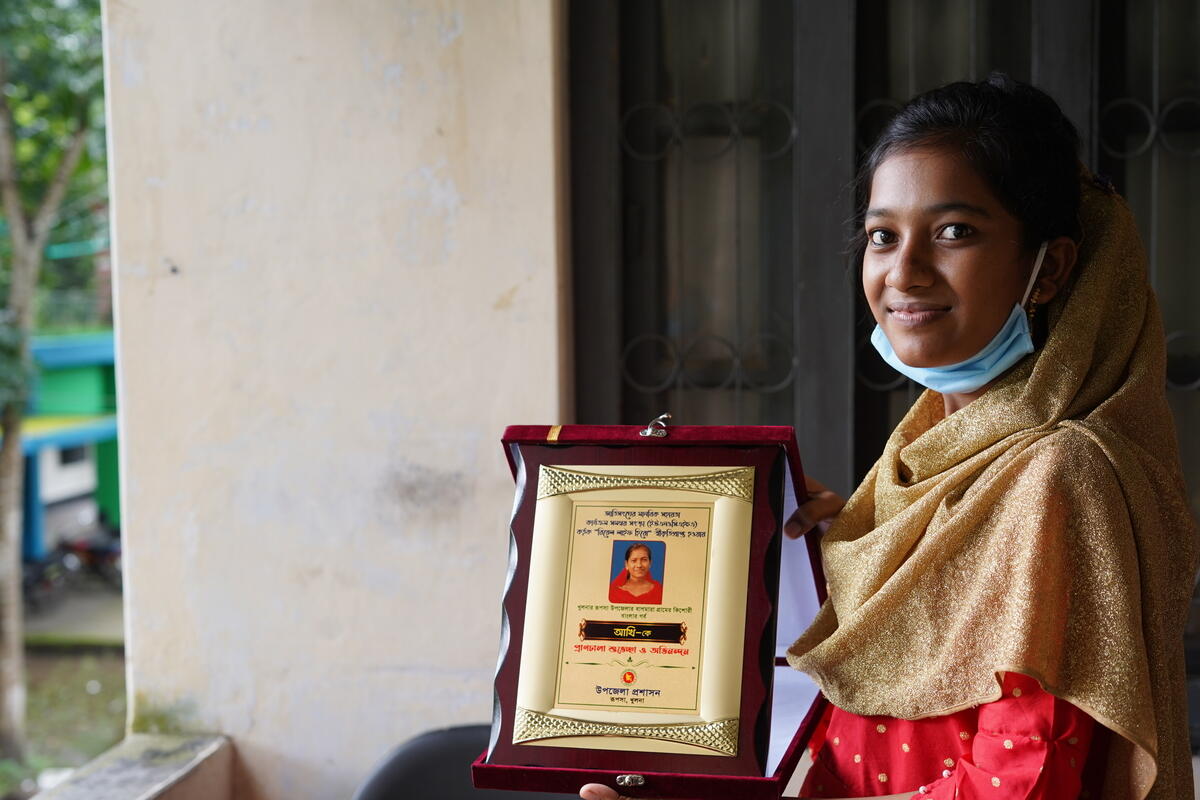From child labour to shining light in her Bangladesh community: Akhi’s story

In Bangladesh, 17-year-old Akhi doesn’t let her age deter her from supporting her neighbours.
As a girl, Akhi worked in a shrimp processing factory to help support her family. She endured long hours working in dangerous conditions.
When World Vision helped her break free from child labour, she learned that she was too old to return to school. So, we sent her to vocational school where she learned important life skills — and how to sew.
We also provided her with a sewing machine and fabric to help her launch her own business.

Soon, Akhi was making custom three-piece dresses, shirts, trousers, and more. She quickly found success selling the clothing she created, along with ornaments and hand-beaded bags, at her mother’s shop.
Then COVID-19 hit — and Akhi noticed a critical need. “There were no masks in the market,” she says.
Putting her talent to use, Akhi begin sewing masks and selling them at a low price. She also created a surplus to donate.
I also do give away free masks to the extremely poor people who cannot afford to pay.

But Akhi didn’t stop there.
Determined to protect her community, she and her family used the training they received from World Vision to share important messages to help prevent the virus from spreading.
They showed others how to wash their hands properly, to wear masks in public places, and to maintain social distancing.
Her efforts soon garnered international attention.

On World Humanitarian Day last year, Akhi was one of eight humanitarians honoured by the United Nations Office for the Coordination of Humanitarian Affairs (OCHA) for her work.
OCHA shared her story as an example of one of the “real-life heroes who have committed their lives to helping others in the most extreme circumstances around the world.”
